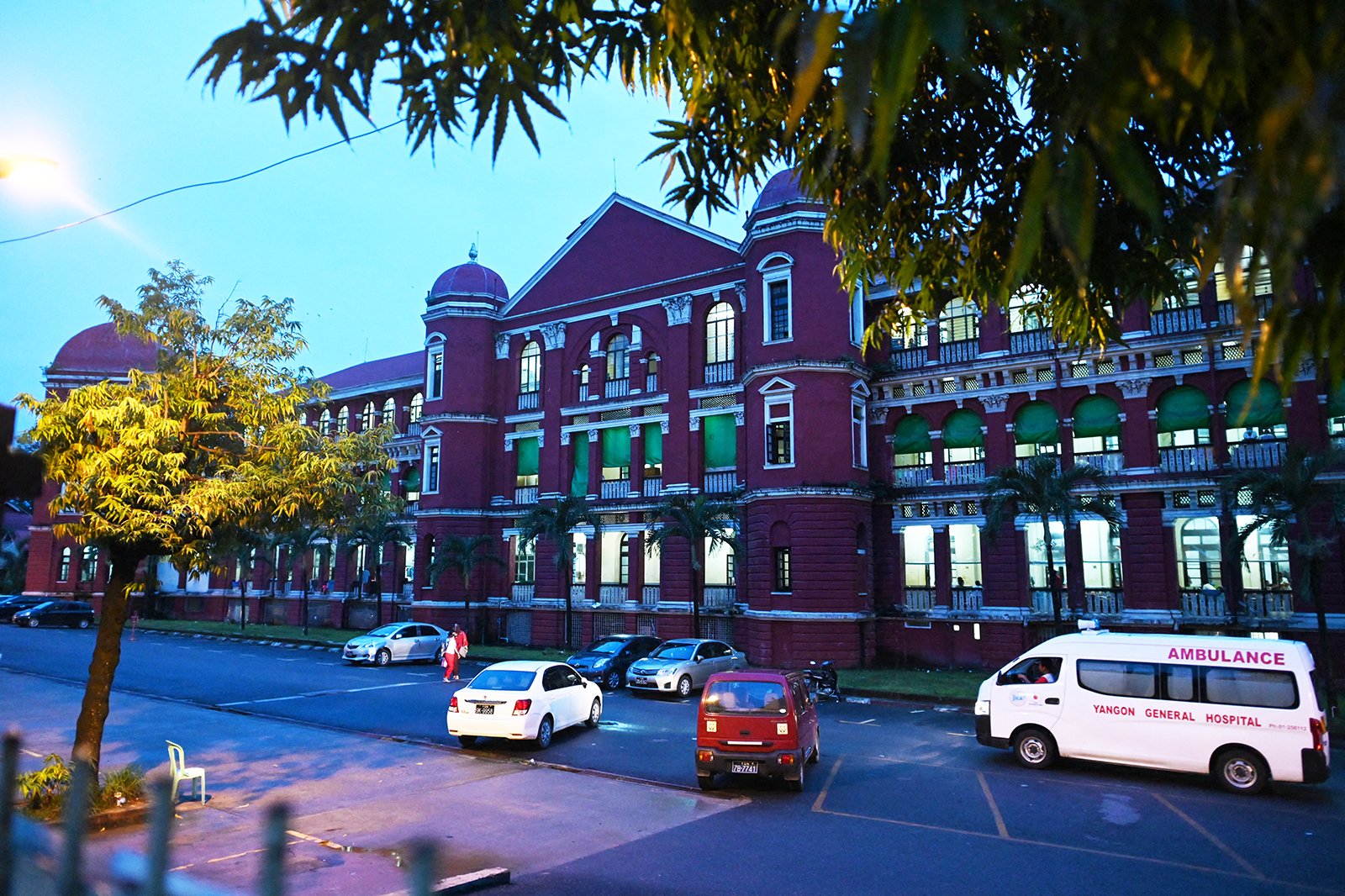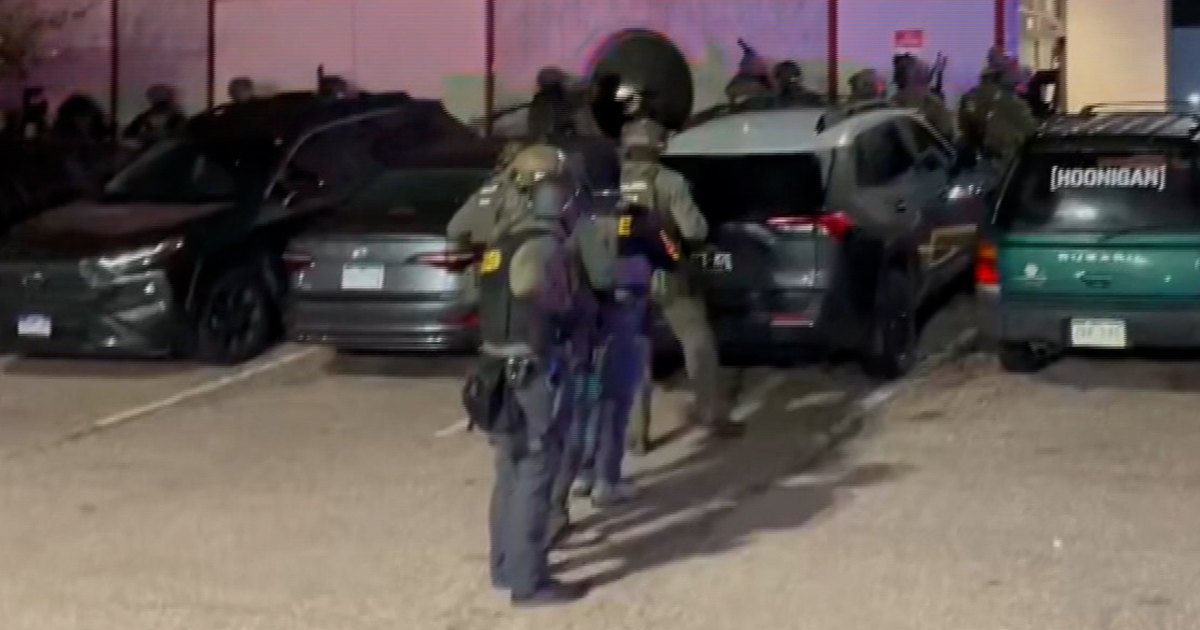By ANT PWEH AUNG | FRONTIER
It was mid last year when truck driver U Kyaw Than came down with a severe fever. He had just completed one of his regular six-hour trips delivering rice and other food items from Mandalay to southern Shan State, but it wasn’t just the grueling job making him ill. He was soon diagnosed with drug-resistant tuberculosis.
The news was devastating but not surprising. For two years, he and his wife had already been living with HIV, a virus that significantly raises the risk of getting TB – an infectious bacterial disease that mostly afflicts the lungs and can be fatal if left untreated. Fortunately, Kyaw Than’s wife hasn’t contracted TB, and their four-year-old daughter is free from both infections, but his diagnosis has still had a profound effect on the family.
Kyaw Than can no longer keep up with his physically demanding job, and his wife Daw Kyu Kyu Myint has had to stop selling flowers at a local market to care for him, leaving them with no income.
The doctor told Kyaw Than he will have to undergo regular treatment for up to 18 months, which began in September last year. With support from a Myanmar NGO that received funding from the United States Agency for International Development, Kyaw Than was able to continue his treatment. Starting in October, he received about K350,000 [about US$80 at the market rate] per month for food, rent, medicine and travel expenses.
But on February 7, the family was informed that this assistance would stop at the end of the month, as part of US President Donald Trump’s efforts to slash foreign aid.
“When I found out that the support would stop, I was devastated. I can’t sleep well at night anymore. We’ve been relying on this support to feed ourselves and it will be incredibly difficult to survive without it,” Kyu Kyu Myint told Frontier, adding she will be forced to borrow money from relatives. As of April, the aid had not been resumed.
Despite the earlier support Kyaw Than received, TB treatment in Myanmar was in a precarious state well before Trump took office in January.
Myanmar’s already shaky healthcare system largely collapsed when the military seized power in 2021. Tens of thousands of government healthcare workers walked off their jobs to join what became known as the Civil Disobedience Movement, while the junta cracked down on health services outside its control.
Before the coup, there were 308 diagnosis and treatment centres under the government-run National TB Programme, but today only 189 are functioning. Some have closed due to staff shortages, others because they are located in conflict areas. Those still running are overloaded with patients.
“Government TB treatment centres are often full, which makes it really hard for patients coming from far away,” said a 30-year-old patient in Yangon, adding that those from outside the city must rent accommodation or travel back and forth long distances.
The cost of these arrangements is too high for poor families without cash allowances of the type provided by US aid. Dr Min Chan Mon, a TB specialist from an international organisation working in Myanmar, predicted that many patients will stop coming as a result.
“The main problem is that patients who need to rent accommodation because they cannot stay at [or near] their treatment centres will return to their villages when they lose funding,” said Min Chan Mon, using a pseudonym for safety reasons. “They won’t be able to come back because they can’t afford the travel expenses. The number of patients coming for their scheduled appointments is expected to drop significantly in the coming months.”
Meanwhile, patients who can still afford to travel will receive diminished services, both from the surviving official centres and NGOs that help share the load.
Dr Thida Oo, a public health professional specialising in the control of infectious diseases, said that at least to some extent, “almost all the NGOs [working on TB] relied on USAID funding, so when that funding stops, they are deeply affected.”
“Some NGOs have had to reduce their healthcare staff,” said Thida Oo, who was also using a pseudonym.
Treatment of the disease in Myanmar has depended on overseas aid for many years.
The Ministry of Health requires that drug-resistant TB patients be treated at government healthcare facilities, a policy in place before the coup. While the junta’s health minister claimed last year that state funds have been used to buy medicine since 2015, Min Chan Mon said in reality state funding was minimal.
“The Ministry of Health buys first-line medicine for drug-sensitive TB patients, which are less expensive. However, the more costly medications for drug-resistant TB patients are primarily paid for by the Global Fund,” Min Chan Mon said.
According to its website, the Geneva-based Global Fund to Fight AIDS, Tuberculosis and Malaria provides 76 percent of all international financing for TB and has invested $9.9 billion worldwide, but it doesn’t specify how much funding it provides for Myanmar.
Private clinics and domestic NGOs, which mostly treat drug-sensitive patients, receive their TB medicines from the health ministry but say they are often expired or close to expiration due to logistical problems and poor stock management.
“In the field, patients are taking expired medications. This happens even in places like Yangon, so the delivery of medication may be even more delayed in remote areas,” said Thida Oo.
“Child TB patients are also taking adult TB medications, which is a big concern. This situation didn’t start after the military coup – it was a problem even before,” said Min Chan Mon.
But since the military takeover, the problems have only gotten worse.
The World Health Organization has long ranked Myanmar among the 20 countries with the highest absolute number of estimated TB and TB/HIV cases. However, the global body said the country’s estimated rate of TB per 100,000 people rose to 558 in 2023, up from 475 the year before. This is a reversal of the pre-coup trend, when Myanmar reduced its TB rates by 20pc between 2015 and 2020.
Treatment and contact tracing have both fallen by the wayside due to the healthcare collapse and conflict.
“The human resources in the Ministry of Health are now extremely limited,” said Thida Oo, who added the regime is forcing some health workers to serve as medics for the military, further depleting staff numbers. “So, some healthcare offices are no longer functioning and some staff are fleeing from their jobs. Some patients are unable to access medication as a result.”
Moreover, with fewer patients regularly visiting clinics, they’re at a higher risk of exposing others, many of whom won’t be diagnosed or treated. Dr Htin Kyaw, a general practitioner at a private clinic supported by local NGOs in outer Yangon’s Hlegu Township, said contact tracing and check-ups for exposed people are essential to controlling TB.
“When we find a patient, they are often already in critical condition,” he said, using a pseudonym. “This is a consequence of the inability to carry out effective contact tracing.”
President Trump announced in late January that funding for 24 USAID projects in Myanmar had been suspended, including $22 million for health, $10 million of which was earmarked for TB and HIV treatment.
It was a sharp departure from the year before, when USAID under the Joe Biden administration said it was “on the frontlines, fighting TB” with the aim of “dramatically reducing its impact by 2030”.
The Global Fund still provides regular financial support of K110,000 per month for a drug-resistant TB patient, but it often isn’t enough to cover costs without the additional USAID support.
For these patients, there are three typical treatment regimens: six months costing $428 per patient, nine months costing $443 and 18 months costing $633. These costs are often out of reach for lower income patients, even before factoring in travel and accommodation.
USAID funding cuts have also undermined contact tracing programmes.
“We’ll fall behind in our fight against TB if we can’t fully carry out disease detection and treatment,” Htin Kyaw said. “If contact tracing is delayed, TB transmission will continue to spread in our country.”
USAID funding was also supporting TB treatment in areas outside regime control. Dr Joshua, head of the resistance-aligned People’s Healthcare Network-Kalay in Sagaing Region, said the cuts had seriously hobbled their mobile services.
“The TB patients we treat are eager to take their medications because we’ve been counselling families from the beginning,” Joshua said. “However, travelling to deliver treatment could become very difficult without financial support.”
He said the organisation is treating around 40 TB patients, with nine new cases identified in January. In Kayin State, meanwhile, the Burma Medical Association said it has had to terminate some services in its 20 clinics, which were also receiving US support.
However, the spread of the disease hasn’t prompted the junta to reconsider its priorities, which remain focused on shoring up its power through violence and oppression. This includes the nationwide military conscription drive begun early last year, which has seen young men abducted at their homes or at security checkpoints – often regardless of their physical and mental fitness.
In October last year, factory worker Kyaw Myo Naing was seized at a security checkpoint in Mandalay while heading to a clinic in the city for his drug-resistant TB treatment. Despite showing them his medical records, he was sent to an army recruitment station in Taunggyi in southern Shan State.
Speaking under a pseudonym for his safety, Kyaw Myo Naing said he underwent weeks of military training in Taunggyi but doctors sent him home in December due to poor health. After returning to Mandalay, he continued his TB treatment. However, he told Frontier that without the allowances he has received via foreign aid, it would become difficult for him to regularly visit the TB centre.
“My greatest wish is to recover and return to normal health like before,” he said. “I want to continue taking my medicine until the disease is completely cured.”
SHARE
Support our independent journalism and get exclusive behind-the-scenes content and analysis
Stay on top of Myanmar current affairs with our Daily Briefing and Media Monitor newsletters.
Sign up for our Frontier Fridays newsletter. It’s a free weekly round-up featuring the most important events shaping Myanmar
© 2024 Frontier Myanmar
This post is also available in: English
US aid cuts kneecap Myanmar in fight against tuberculosis – Frontier Myanmar



